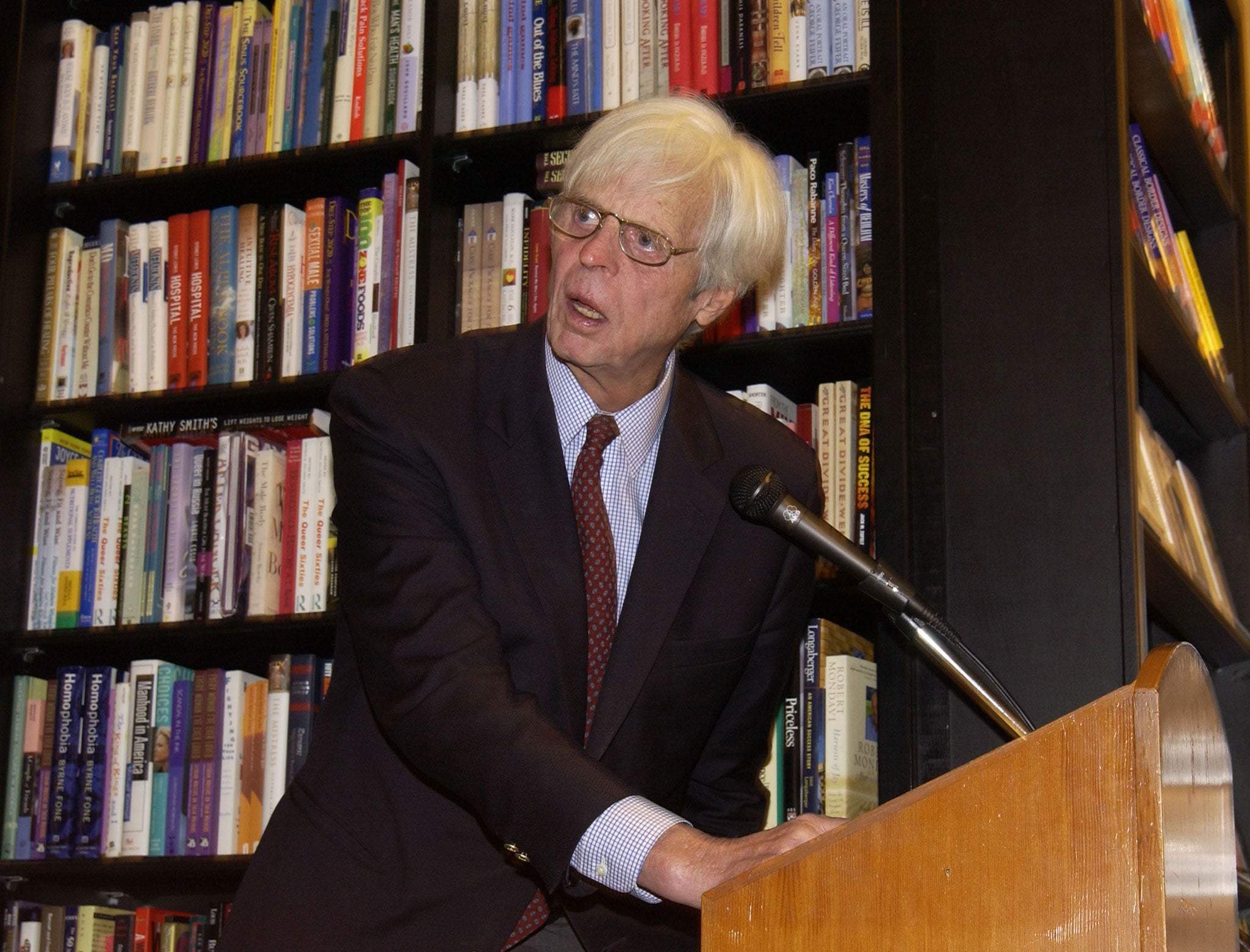Feats of gonzo journalism have lost their lustre since George Plimpton’s pioneering days as a universal amateur
A documentary about the writer’s remarkable sporting exploits is to air this year

The CNN presenter, former Daily Mirror editor and well-known exhibitionist Piers Morgan recently suffered a fractured rib after facing a 90mph over from the Australian fast bowler Brett Lee. He wrote up the experience in the Mail on Sunday, recounting how dangerous it had been. “This wasn’t about avoiding getting out any more; this was about avoiding getting killed,” he said. After the final ball he staggered towards his family. “I’m still alive,” he gasped.
The response to Morgan’s stunt was a mixture of cruel mirth from those who enjoyed watching him suffer and incredulity from those who viewed the exercise as needlessly reckless. There was little sympathy and much less admiration for an experiment that was intended to demonstrate the sporting gulf between amateur and professional.
Much has changed since George Plimpton pioneered the concept of participatory or “gonzo” journalism, leaving the American public in awe of his bravado and grateful for his elegantly written insights. Plimpton was seen as the “universal amateur” who would venture into the worlds of professional sport on behalf of the millions who could get no nearer the action than the bleacher seats. He began by persuading his editors at Sports Illustrated to arrange for him to participate in an all-star game at Yankee Stadium in which he pitched to the great Willie Mays. People in the crowd stood to applaud. He wrote a book about it called Out of My League.
Such was the response that Plimpton made a career as “a collector of experiences”. He played basketball with the Boston Celtics and quarterback for the Detroit Lions during pre-season training. The resulting publication, Paper Lion, was described by the Wall Street Journal as “the best book ever about football or anything”.
Plimpton was the journalistic equivalent of the method actor. He learned to box and went into the ring with the world light-heavyweight champion Archie Moore. In one of his most difficult experiments, he played triangle for the New York Philharmonic Orchestra. As Plimpton’s notoriety spread, newspapers and magazines carried headlines and cartoons about him. “Let George Do It” became a national catchphrase.
The power of the journalistic device of “participation” became confused by his fame. Some forgot he was a reporter. That was the beginning of the end for gonzo journalism. We see it now in the television style exemplified by Louis Theroux but many viewers are irritated by the theatricality of gesticulating news reporters who attempt to “become the story”. As for the window into the hidden world of professional sport that Plimpton provided in the 1960s and 1970s, it long ago lost its exclusivity. These days the sports media is dominated by ex-professionals who set out the intricacies of their game. There is not much virgin snow left for reporters to tread.
In Plimpton’s time, his locker-room colleagues were impressed with his efforts. After Morgan faced up to Lee, the former England captain and now broadcaster Michael Vaughan tweeted: “Rumours @piersmorgan has a broken rib… I am sure you all will give him plenty of sympathy!!!”
A documentary will be shown on the PBS America channel on 16 February: Plimpton! Starring George Plimpton as Himself. A lifelong admirer and friend of Ernest Hemingway, Plimpton’s real love was the literary journal Paris Review, which he edited and funded into his final years. It published Updike, Mailer, Marquez and Atwood. Tom Wolfe, Gore Vidal and Truman Capote were among those who attended his literary parties. Some thought he could have been a greater writer. They looked at his gonzo journalism and accused him of being a “dilettante”. Years later, Morgan is being called a lot worse.
Join our commenting forum
Join thought-provoking conversations, follow other Independent readers and see their replies
Comments
Bookmark popover
Removed from bookmarks